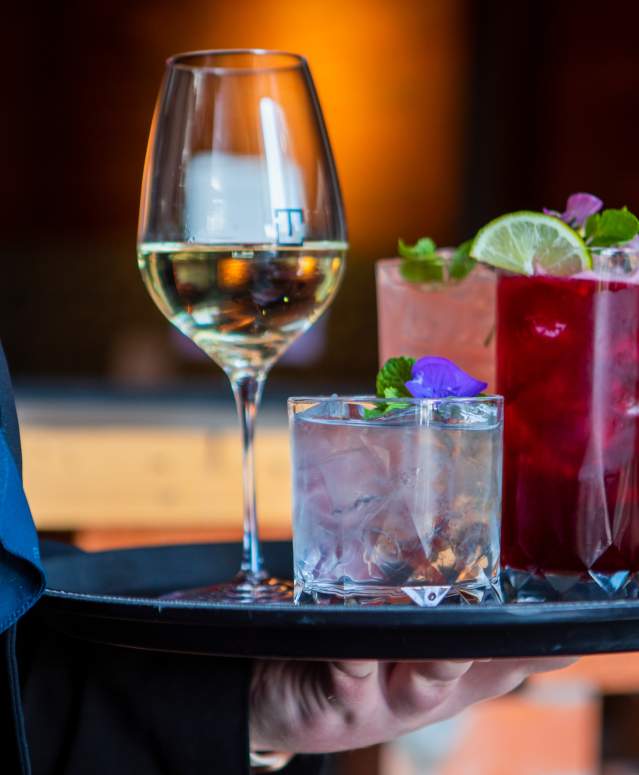Alcohol Licensing
To ensure the safety of your guests and to comply with relevant laws, it is essential to understand the regulations around organising events that involve the selling or supplying of alcohol.
Alcohol licensing in New Zealand is governed by the Sale and Supply of Alcohol Act 2012 and administered by the Alcohol Regulatory & Licensing Authority (ARLA). On a practical level, District Licensing Committees (DLCs) run by Local Councils are responsible for considering and determining licence applications, renewals, variations, suspensions and cancellations.
Tips:
Alcohol licence types
In an event context, the relevant type of alcohol licence and the associated terms of trade will depend largely on the type of event, the venue and who receives the profit from alcohol sales. There are four types of alcohol licence:
- On-licence: allows the sale or supply of alcohol for consumption on the premises. Licenses of this type are commonly held by pubs, taverns, hotels, restaurants, cafes, bars, entertainment venues, trains and planes.
- Off-licence: allows the sale or supply of alcohol for consumption off the premises. Businesses such as bottle stores and supermarkets often hold off-licences.
- Club licence: allows the sale or supply of alcohol for consumption on the club premises to members of the club, their guests, and members of other clubs with reciprocal visiting rights (e.g. sports clubs, RSAs or Working Men's Clubs).
- Special licence: allows the sale or supply of alcohol to anyone attending an event, private function, street party or sporting event. Special licences can be either ‘on-site’ for consumption on the premises (e.g. sports event or concert), or ‘off-site’ for consumption elsewhere (e.g. food and wine festival).
An on-licence, off-licence, or club licence is granted initially for one year and then can be renewed every three years. A special licence is granted per event or for a series of events.
Application process
Determining the alcohol licence type:
- If the event venue is a licensed premises that has a current on-licence or club licence, your event may be able to operate there under the existing licence with no variations, so long as your event’s activities and timings fit within the terms of the licence.
- If your event’s activities require expansion of the service area or times of service that the venue’s current licence allows, the licence holder must apply for a variation to this licence or apply for a special licence to cover the event.
- If the event venue does not have a current on-licence or club licence, you must apply for a special licence to sell or supply alcohol at your event.
Application forms and fees:
- The applicant for the licence (the event organiser, the venue, or a third party) is an important consideration. Generally, it should be the person or group receiving the profits from the sale of alcohol.
- District licensing committees (DLCs) run by local councils produce and supply licensing application forms specific to the region, referencing relevant local alcohol policies.
- The fees associated with applications vary between DLCs and with the type of licence and size of event. A schedule of fees is available from your local DLC.
Eligibility criteria:
When deciding whether to issue a licence, the DLC (or in some circumstances the ARLA) consider the:
- objectives of the Sales and Supply of Alcohol Act 2012
- suitability of the applicant
- any relevant local alcohol policies
- days and hours of sale
- design and layout of premises
- sale of goods other than alcohol and refreshments
- provision of other services not related to the sale of alcohol and refreshments
- if amenity and good order of the area would be substantially reduced
- undesirability of further licences where amenity and good order have already been reduced
- if the applicant has systems, staff, and training to comply with the law
- any matters reported by the police, an inspector, or the Medical Officer of Health.
Supporting documents:
Additional documentation that may need to be provided with an alcohol licence application include:
- A site plan showing:
- area to be licensed
- designated areas – restricted, supervised or undesignated
- entrance(s) and exit(s)
- location and number of toilets
- where alcohol will be sold and/or supplied from
- security placements
- safe space
- outside smoking area
- location of free water
- location of where food will be available
- location of host responsibility and prohibited persons signage.
- Property owner approval (if the applicant does not own the premises).
- A timetable or programme that shows the activities and timings of the event.
- A copy of the duty manager’s certificate.
- A copy of tickets, invitations, or any promotional material.
- A risk management plan.
- Reason for lateness and request for acceptance (if the application is lodged less than 20 working days from your event).
Timeline:
- It is prudent to get applications in with as much notice as possible.
- Most DLCs require a minimum of 20 working days to consider special licence applications.
- New on-licence and club licence applications may require longer than 20 days for consideration.
- Depending on the DLC, ‘working days’ may not include weekends, statutory holidays or a shutdown period over the Christmas / New Year break.
- Late submissions may be considered; however, you will need to provide a valid reason for lateness and a request for acceptance for this to occur.
- The reason for the consideration period is to allow notification and input from DLC licensing inspectors, local police, and the medical officer of health from the local District Health Board.
Host responsibility
The Host Responsibility Guide from Te Whatu Ora Health New Zealand provides practical advice on how to keep within the law and covers:
- staff training
- intoxication
- minors
- drink options
- food
- promotions
- transport
- penalties, fines and offences.
Another great resource is the On-licensed premises toolkit from Te Whatu Ora Health New Zealand, which outlines the important considerations for a licensed premise from a host responsibility perspective.
Designated supervisors
A certified duty manager is required in most licensing situations. They are responsible for ensuring the conditions of the alcohol license are adhered to and that alcohol is supplied in a responsible manner, while minimising alcohol-related harm.
- The duty manager must be on duty while alcohol is being sold or supplied, and their name must be displayed prominently with appropriate signage.
- Duty Manager Certificates are issued by local DLCs following an application process which considers relevant training, experience, suitability, and character references. Applicants must be at least 20 years of age.
- The licensee must notify the DLC and police of the appointment, cancellation, or termination of a duty manager within two days.
Designated areas
There are several types of designated areas that can be defined within an alcohol licence. Each has their own set of parameters, designed to restrict access to alcohol by under-age persons. In the application for a licence, these designated areas must be clearly marked on the site map. The three types of designated areas are:
- Restricted areas – persons under the age of 18 are not permitted.
- Supervised areas – persons under the age of 18 may be present but only if accompanied by a parent or legal guardian.
- Undesignated areas – persons of any age may be in this area.
Age verification
Establishing proof of age for patrons entering a licensed area is the responsibility of the licence holder, with the process of age verification carried out by either security staff at the entry point or by bar staff at the point of sale or supply.
Three types of identification are considered acceptable, with each containing a photograph for positive identification. These include a current:
- New Zealand or overseas passport.
- New Zealand Driver Licence.
- Kiwi Access Card (previously known as the 18+ Card) issued by Hospitality New Zealand.
Useful Links:
- Applying for a licence (resources.alcohol.org.nz)
- Guidelines for Managing Alcohol at Large Events (resources.alcohol.org.nz)
- Licenced Premises Toolkit (resources.alcohol.org.nz)
- Te Whatu Ora resource store | Alcohol (healthpromotion.govt.nz)
- Alcohol licences | New Zealand Police (police.govt.nz)
- Be the Best Duty Manager/Free Resources (getlcq.co.nz)
- Alcohol licences - Invercargill City Council
- Alcohol | Southland District Council
- Alcohol Licensing - Gore District Council
Have you considered?
- Does your event venue have an existing alcohol licence that could cover your event?
- Who will receive the profits from the sale of alcohol at your event?
- What type of alcohol licence best suits your event’s needs and situation?
- Have you allowed sufficient time for consideration of your special licence application?
- How will you provide substantial food and non-alcoholic beverages to your guests?

